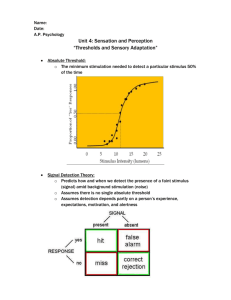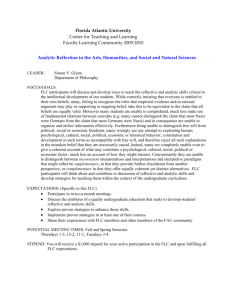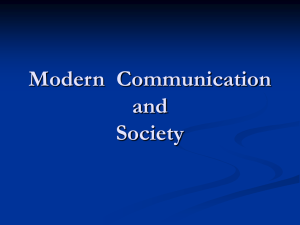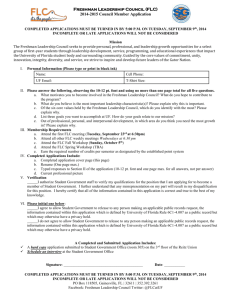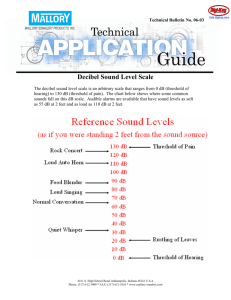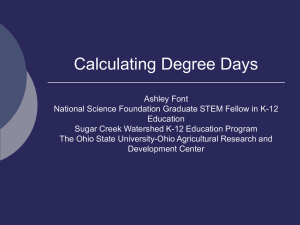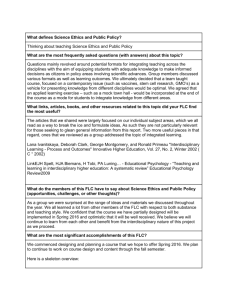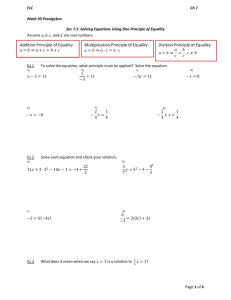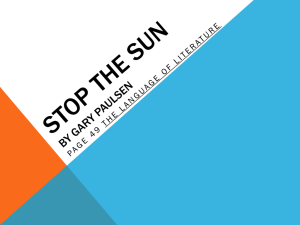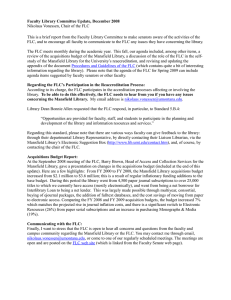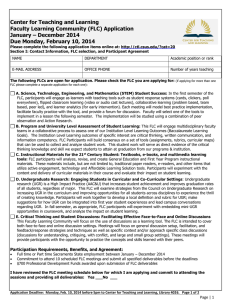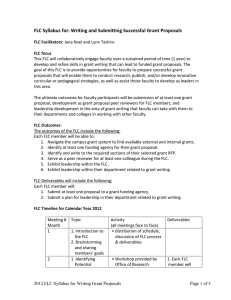Threshold concepts - Center for Teaching and Learning
advertisement
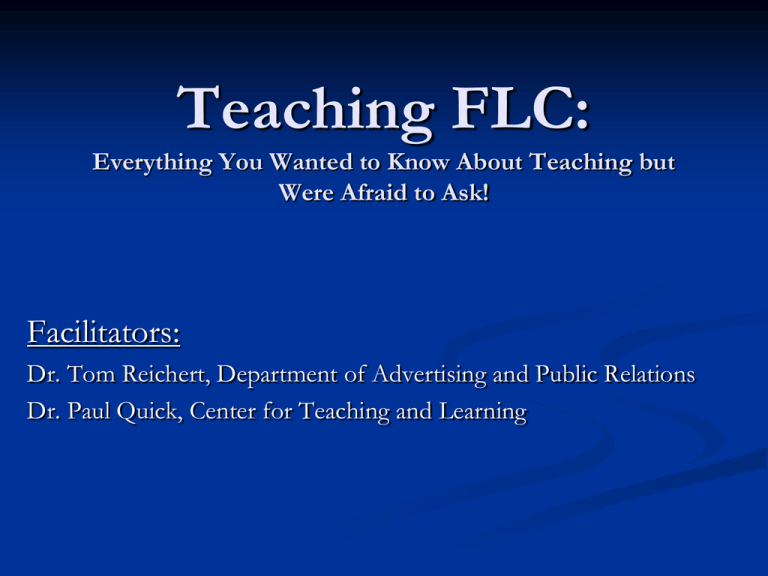
Teaching FLC: Everything You Wanted to Know About Teaching but Were Afraid to Ask! Facilitators: Dr. Tom Reichert, Department of Advertising and Public Relations Dr. Paul Quick, Center for Teaching and Learning Teaching FLC: Founded in 2010 Principle Participants Elizabeth White, Libraries Carol Britton Laws, Social Work C. Robert Dove, Animal and Dairy Andrew Owsiak, SPIA Lilia Gomez-Lanier, Texiles, Merchandising and Interiors Gaylen Edwards, Vet. School Jennifer Atkinson, Terry Catherine White, Pharmacy Ellie Lanier, Law School Janine Aronson, Terry Zhongjin Lu, Terry Kris McWhite, Terry Keith Nichols, Libraries Ritual Knowledge Students learn the ritual responses to definitional questions and quantitative problems, but their intuitive beliefs and interpretations resurface in quantitative modeling and outside-of-classroom contexts. Threshold concepts Disciplines have “threshold concepts”: Concept/practice that functions as an opening up of a new landscape to the discipline Distinguished from “core concepts,” TCs are more about “seeing things in a new way.” Jane H.F. Meyer and Ray Land https://www.youtube.com/watch?v=WR1cXIdWnNU Threshold Concepts (cont.) Represent a transformed way of understanding, or interpreting, or viewing something, without which the learner finds it difficult to progress within the curriculum as formulated. Consequence of comprehending a threshold concept: maybe a transformed internal view of subject matter, subject landscape, or even world view. Threshold concepts (vs. core concepts) Transformative Integrative Irreversible Bounded Troublesome* Other examples Literary studies—signification, deconstruction Accounting— depreciation Biology, Psychology—“evolution” Politics—“the state” History—“Asiatic conceptions of time” Plant Science—“Photoprotection” Health Science—“care” Example for Our FLC Keith Nichols, Libraries Threshold Concept: Information as process, not product Students have a difficulty understanding how information is created and that authority is based upon origins, discipline-specific contexts, and suitability Information as commodity vs. free Information is not static Change in practice: integrate theoretical in library orientation to deepen understanding of what constitutes library research Example for Our FLC Ellie Lanier, Law School Threshold Concept: Positive Neutrality In mediation, PN the ability of a mediator to accept and hold both sides of a conflict as equally valid Challenge for law students: not taking sides Challenge: moving from judging to mediating Change in practice: making the implicit explicit in teaching legal mediation. Ready for 2015-2016 Come join us! Next year we are starting with a compilation of topics after which each FLC member will vote for 2. We will cover topics that get the most votes. People will share examples of that topic, discuss challenges and make changes in their teaching.
